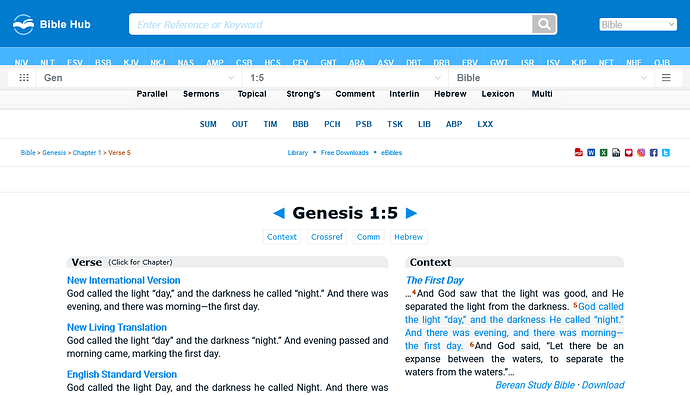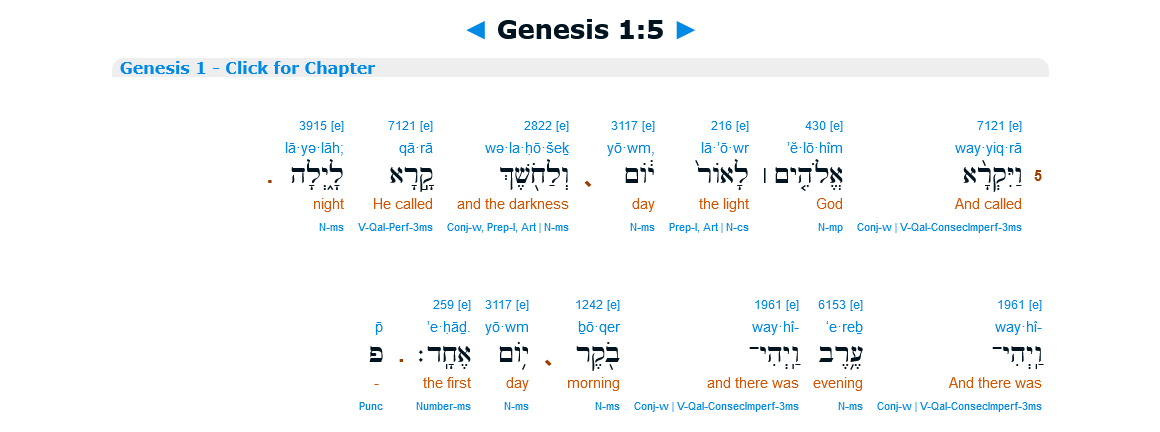Hi. YEC’s , mainly AIG, have an argument which teaches that there are “many reasons” to believe that NT writers and Jesus himself believed in 24 hour days. What is your guys’ response to this argument? After all, if all of the NT writers did, then this would indicate that Young-Earth Creationism is the biblical and God-inspired interpretation. Did the NT writers believe that the days were longer than 24 hours, making an older earth possible?
In short, no, it would make no different to a YE/OE argument. Scripture doesn’t teach science anywhere within it, so the implied scientific statements are irrelevant to the purpose of scripture. The scripture does accurately reflect the scientific beliefs of the ancient near east culture as can be shown from comparative studies with the nations and kingdoms around Israel that existed at the same time.
AIG and YEC’s are inconsistent in their hermeneutic when it comes to this. They don’t believe the earth is flat, stationary, resting on pillars, covered by a solid dome that that was surrounded by water, that the realm of the spirits of the dead is below ground, that emotions come from your guts, that the man transfers a complete human into the woman during intercourse, and on, and on, and on…
They are wrong in their approach to scripture and are therefore wrong in many of the conclusions they draw from it.
Obviously, the writers were not thinking of 24 hour days, as they did not have clocks, or hours, but yes, they were talking of ordinary sunup to sundown days. Just as Robert Frost wrote about two ordinary paths that diverge in a woods just like what might be outside your window, even though the poem is about choices in life and regret.
With the biblical authors, they were not making the days figurative about a thousand years,or an era, or a billion years, but rather they were making a point about who God is, and what that means to our lives.
Ok, but aren’t they inspired by God?
It’s not an argument, really. It’s a bald assertion. They make lots of assumptions I don’t accept as valid. Like because someone refers to a person, it proves they believe the person is historical. The fact is we don’t have access to the minds of the authors and we can’t know exactly what they believed about the literal historicity of Genesis based on the sparse references they make in the NT texts.
Ok. True. One thing that you guys said and argued is that the Ancient Israelites probably understood the days to be metaphorical. However a website called Grisda said that an Alexandrian father is credited as being the first to interpret these days that way. Full article: Geoscience Research Institute | The “Days" of Creation in Genesis 1: Literal or Figurative?
But it’s not that the days mean something other than days. They aren’t a metaphor for something else. It’s that the whole account of God creating three realms and assigning inhabitants to those realms is a figurative way of describing his inauguration of the cosmos as his temple, it’s not a blow by blow narration of chronological literal history of six days time. In the account the days mean days, 24 hour days if you insist on framing it that way. But that doesn’t mean that the whole account isn’t figurative, where God is depicted anthropomorphically and elements of the human world (a work week) are co-opted to frame his creative work in more familiar terms accessible to human brains.
I think the way I should’ve phrased it is that they believed the story was metaphorical. The article said that this churchfather was the first person to interpret the story to be metaphorical.
The message and meaning certainly. The word choice, context, grammar, and imagery perhaps he left to the human writers. We have had several threads regarding inspiration of scripture that were interesting to ponder. To be inspired is not necessarily to be dictated. In fact, for a writing to be inspired implies applying a creative story based on something that lies behind the words themselves.
They had sundials and early water clocks, but not our modern version of hours: the Roman system divided daytime into twelve hours and nighttime into twelve hours, so hour length varied.
Aren’t we all?
An understanding of the Biblical stories that has helped me immensely, that I learned from Richard Rohr goes like this: The story is true, and it might have happened that way. You can do your own elaboration on that.
Good Lord, Rohan. The website that you referred to is a Seventh-Day Adventist sponsored website. That you continue cite creationist opponents of Biologos approved non-creationist authorities makes me wonder if you’re intentionally trying to stir up negative responses from Biologos folk.
If X and Y disagree with each other, have always disagreed with each other, and will always disagree with each other, then quoting Y when you’re talking to X is poor way to impress X unless and until you listen to X and disagree with Y. You’re going about it all wrong.
We don’t know what they thought about the days. More importantly, we don’t know if they thought about the days. The basic problem is assuming that the length of the days of Genesis 1 is a big deal that must have been on their minds.
We do have some first century Jewish sources. Philo took a rather figurative approach; Josephus takes both a more literal and a more figurative approach. The earliest Christian commentary we have is Origen’s; he was quite a fan of figurative approaches. However, all of these (and later Christian sources) are influenced by Hellenistic thinking and probably are not as closely in touch with older Jewish thought (cf. John Walton’s discussions).
Here/s an idea:
- Why doesn’t someone interested in finding out more about how “Yom” and all it’s Hebraic variants are used in the Tanakh, go to Genesis 1:5 in Biblehub,
- Then go up and click on “Interlin”
- Next, click on the Strong number for

- And when they arrive at this:
- Where, if they look over to far right and scroll down to this:
- They can look up and record each and every occurrence of a variant of the Hebrew word “Yom”, and identify the variant’s commonly accepted translation.
- And tell us what they’ve found.
- There are only 2,303 occurrences.
This topic was automatically closed 6 days after the last reply. New replies are no longer allowed.




